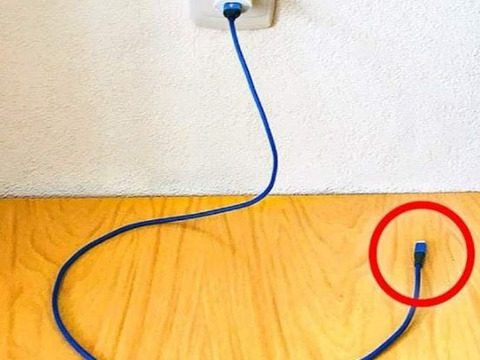Dealing with a snoring husband can make bedtime feel like an endless struggle for peace and quiet. While medications are an option, many prefer exploring natural and home-based remedies. If your husband is reluctant to take medication for his snoring, there are plenty of effective alternatives to consider. By identifying the root causes and making simple adjustments, you can create a more restful sleep environment for both of you. Here’s a comprehensive guide to tackling snoring naturally, ensuring peaceful nights ahead.

Understanding the Causes of Snoring
Snoring happens when airflow through the mouth and nose is partially blocked during sleep, causing vibrations in the soft tissues of the throat. Common causes include:
- Nasal congestion: Allergies, colds, or sinus issues can block nasal passages, making breathing harder.
- Excess weight: Fat deposits around the neck can narrow the airway, increasing snoring.
- Alcohol consumption: Drinking relaxes the throat muscles, which can lead to snoring.
- Sleeping position: Lying on the back often causes the tongue and soft palate to collapse toward the throat, restricting airflow.
- Throat anatomy: Enlarged tonsils or a low, thick soft palate can contribute to airway obstruction.
Understanding which factors are triggering your husband’s snoring is the first step toward finding the right solution.
The Impact of Snoring on Health and Relationships
Snoring isn’t just a nighttime nuisance—it can have lasting effects on health and relationships. If left unaddressed, it may lead to:
- Daytime fatigue: Interrupted sleep leaves both partners feeling tired and irritable.
- Relationship strain: Lack of rest can cause tension, frustration, and even resentment.
- Health risks: Persistent snoring may indicate sleep apnea, a condition linked to heart disease, high blood pressure, and other serious health problems.
Addressing snoring isn’t just about reducing noise; it’s about improving well-being and maintaining harmony at home.
Lifestyle Changes to Reduce Snoring
Simple lifestyle tweaks can often make a significant difference in reducing snoring. Encourage your husband to try these:
- Maintain a healthy weight: Losing even a small amount of weight can reduce pressure on the airway and minimize snoring.
- Limit alcohol intake: Avoid alcohol, especially in the evening, as it relaxes throat muscles and increases the risk of snoring.
- Stick to a sleep routine: Consistent bedtimes and wake-up times promote better sleep and reduce snoring triggers.
Small changes like these can lead to noticeable improvements in sleep quality.
Dietary Adjustments to Minimize Snoring
What your husband eats—and when—can influence his snoring. Consider these dietary tips:
- Avoid heavy meals before bed: Eating large or fatty meals close to bedtime can exacerbate snoring.
- Cut back on dairy: Dairy products can increase mucus production, leading to nasal congestion.
- Stay hydrated: Dehydration thickens mucus, making it harder to breathe freely.
- Incorporate sleep-friendly foods: Foods like bananas, almonds, and cherries, which are rich in melatonin and magnesium, can promote better sleep.
These dietary adjustments can help reduce nighttime disruptions and improve overall rest.
Encourage Side Sleeping
Sleeping position plays a major role in snoring. Lying on the back often worsens snoring as gravity pulls the tongue and soft tissues toward the throat, partially blocking the airway. Side sleeping, however, helps keep the airway open.
Pro Tip: Use a body pillow or positional devices to help your husband maintain a side-sleeping position throughout the night.
Create a Snore-Free Sleep Environment
Optimizing your bedroom environment can also minimize snoring triggers. Here are some tips:
- Clean regularly: Dust and allergens can block nasal passages, worsening snoring.
- Use hypoallergenic bedding: This reduces allergic reactions that contribute to snoring.
- Control humidity: A humidifier prevents dry air from irritating nasal passages and throats.
- Use earplugs or white noise machines: These can help you rest better even if the snoring persists.
A clean and comfortable sleeping space benefits both partners.
Try Breathing Exercises and Techniques
Strengthening the muscles in the throat and improving airflow can reduce snoring over time. Encourage your husband to try:
- Nasal breathing exercises: Practice deep, controlled breathing through the nose.
- Singing or playing wind instruments: These activities tone the muscles in the upper airway.
- Daily throat exercises: Simple routines like sliding the tongue along the roof of the mouth can help.
With consistent practice, these exercises can lead to long-term improvements.
Explore Natural Remedies
If your husband prefers natural approaches, consider these remedies:
- Essential oils: Peppermint or eucalyptus oil can help open nasal passages. Use them in a diffuser or apply diluted oil to the chest.
- Herbal teas: Chamomile and valerian root teas can help relax the body and encourage deeper sleep.
While results may vary, these remedies are worth trying as part of a holistic approach.
When to Seek Professional Help
If home remedies fail to resolve snoring, it may be time to consult a healthcare professional. Chronic snoring could indicate obstructive sleep apnea, which requires medical intervention. Signs like gasping for air during sleep, extreme daytime fatigue, or high blood pressure warrant evaluation. Treatment options include:
- CPAP machines: These provide continuous airflow to prevent airway collapse.
- Oral appliances: Custom-fitted devices adjust the position of the jaw and tongue to reduce snoring.
- Surgery: In severe cases, surgical intervention may be necessary to remove obstructions in the airway.
Conclusion: Peaceful Nights Are Possible
Snoring doesn’t have to be a permanent problem. By identifying the root causes and exploring these natural remedies, you can help your husband find relief while reclaiming peaceful nights for yourself. From lifestyle adjustments and dietary changes to creating a better sleep environment and trying natural solutions, there’s no shortage of effective strategies. If snoring persists, seeking professional help can provide lasting relief. With patience and persistence, you’ll both be able to enjoy restful, snore-free nights.





